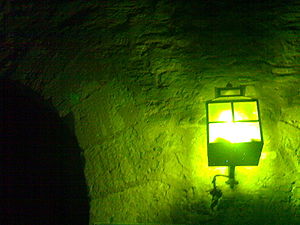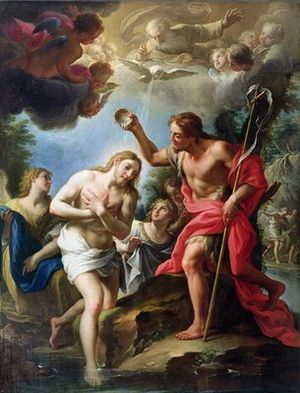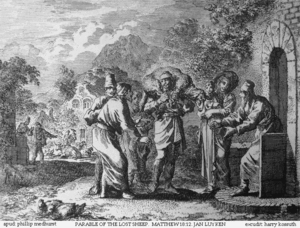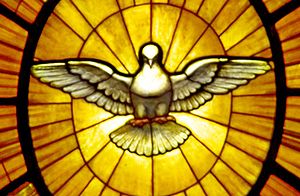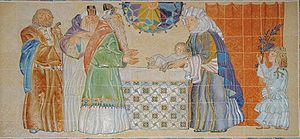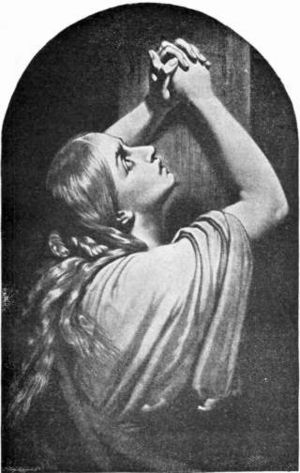The Gospel for February 6, 2011 is from Matthew 5:13-16 where Jesus tells His apostles to be a light to the world and not to hide it. In Mt 5:15 Jesus says, “Nor do they light a lamp and then put it under a bushel basket; it is set on a lamp stand, where it gives light to all in the house.” The Fifth Luminous Mystery of the rosary, The Institution of the Eucharist, reminds us how that sacrament makes us a light of grace and goodness to the world which we must not hide.
As Catholics, we believe that Jesus is actually present in the Eucharist. When we receive the host in the sacrament of Communion, we literally receive Jesus. That means that we receive His grace and that is what sustains us spiritually throughout the week. Much like how our body needs food and water to survive, our soul needs Jesus through the Eucharist. And we use that grace and spiritual energy to be a “light to the world” as Jesus says in the Gospel. We must remember that we not only receive a gift of grace in this sacrament but also the obligation to live our faith for all the world to see.
Often we forget our spiritual obligations of receiving the sacrament of the Eucharist. We may receive Jesus, but we negate any of the sacrament’s benefits when we choose to sin. Much like the light under the basket in the Gospel, the grace of Jesus Christ can be hidden by our lust, gluttony, greed, envy, or any other sinful behavior.
Our behavior can have a ripple effect. Jesus calls us to do good deeds so that other will see them and be influenced to do good as well. This should be easy since, much like how a lamp radiates light, someone in God’s grace should just radiate goodness and love. For example, we probably all know some good, solid people in our lives who are just a pleasure to be around. They don’t need to try to be good but instead goodness just comes out naturally from them. Those people are good examples for us since they are guided by the Holy Spirit to show God’s love. However, be careful not to mistake living your faith with showing off. Jesus says later in Matthew’s Gospel that He does not want us to show off good works for the sake of receiving praise from others. Instead, our good works should always be directed towards giving glory to God.
When you hear this Gospel or meditate on the Fifth Luminous Mystery while praying the rosary, ask yourself if you are glorifying God by living according to His will. What type of example are you setting for those around you? Will your behavior lead others to do good or to sin? Do you proudly proclaim and live your faith publicly or is it something you hide from the world? And if you do live your faith, do you do it to win the praise and glory of others or to glorify God? Throughout the week, remember this Gospel. Do not be afraid. Go out and be brave by living your faith for all to see. If you receive God’s grace during the sacrament of the Eucharist, show it off!
Related articles
- Reflections on “7 Secrets of the Eucharist” Part 1 (icatholicfaith.wordpress.com)
- Reflections on “7 Secrets of the Eucharist” Part 2 (icatholicfaith.wordpress.com)
- The Eucharist and Culture (insidecatholic.com)
- The Meat of the Eucharist: Defending the Real Presence (Part 1) (trustinjesus.wordpress.com)


